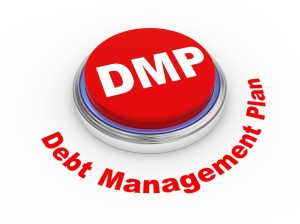What Happens Pursuant to Chapter 11?
When a business files for Chapter 11, the business is provided an opportunity to propose a reorganization plan. If an agreement with creditors is not reached during that time then the creditors are provided with an opportunity to propose a reorganization plan. The plans must meet specific criteria in order for to be approved by the bankruptcy court. If a reorganization plan is not reached and agreed to by the creditors then the Bankruptcy Court can either convert the case to a Chapter 7 bankruptcy proceeding or it can discharge the case entirely.
Category Archives: Chapter 11 Facts
When and When Not To File Under Chapter 11
Chapter 11 is the most complex and expensive to for filing bankruptcy. This bankruptcy code involves the reorganization of a debtor’s business affairs and assets. The corporations that are in need of time to restructure their debts file their bankruptcy using Chapter 11.
Chapter 11 is found to be the best way to the small businesses to file the bankruptcy. Though they can file the bankruptcy under Chapter 13 but they face few hurdles while filing under the mentioned Chapter. The hurdles are:
1. Chapter 13 needs a continuous flow of income to keep the debt repayment in a flow of no “no-pay”. Besides this the small businesses that are operated as partnership or through corporations are not eligible for filing under the Chapter 13.
2. The Chapter 13 is also subjected to debt limitations which changes periodically. Right now the debt limit is $383,175 in unsecured debt and $1,149,525 in secured debt.1
3. In case of appointment of trustee, it is a necessity in Chapter 13 filing but the Eleven doesn’t need an appointed trustee to ensure the re-payment unless there is a matter of mismanagement or fraud.
Though Chapter 11 is advantageous then Chapter 13 in the aforesaid ways but the main disadvantages of the Chapter is its complex ways of execution followed by a considerable high expense. Firebaugh & Andrews, being Westland Michigan Bankruptcy Lawyer/Attorney with Chapter 7, 11 and 13, after discussion with the debtor if found that the filing needs Chapter 11 utmost then only they file the bankruptcy through 11 otherwise they prefer 13.
Know More About Chapter 11 Bankruptcy Filing in Westland Michigan
Know More About Chapter 11 Bankruptcy Filing
Are you stuck in a complex web of bankruptcy filings and do not know how to go about the procedures? Then the Westland Michigan Bankruptcy Lawyer is the best person to help you understand the details of your bankruptcy chapters.
If you are particularly stuck in chapter eleven then it is better to opt for a lawyer or an attorney who is specialized with the Chapter eleven. In fact these lawyers have the credit of being specialized in different chapters. Hence, a Westland Michigan Chapter 7 Bankruptcy Attorney would generally try not to deal with a chapter eleven unless absolutely mandatory.
Approach Professionals for Understanding Chapter 11
Approach Professionals for Understanding Chapter 11
The Chapter 11 of bankruptcy files mostly deals with the methods of regaining some of the assets when a person files such bankruptcy files.
The Westland Michigan Bankruptcy Lawyer is the best people to help you out with the various procedures which are involved in this particular type of chapter. Here a person has the option of gaining some of the properties or assets and selling the others to repay his or her debt to the fullest.
This particular chapter- chapter 11 is available to both the individual and the big corporate houses. In certain cases some of the chapters are not available to many of the individuals and corporate houses but this is not the case with Chapter 11.
Bankruptcy Primer
Bankruptcy is the legal means of wiping out debt. It may seem like a simple solution when you get in over your head in debt. Bankruptcy, though, should not be taken lightly. There are many repercussions of filing bankruptcy.
Before you file bankruptcy you should have a good understanding of the process and what to expect after you have competed filing.
Bankruptcy is meant to give a person a fresh start by relieving debt. A person can file bankruptcy for most debts they have incurred. Some debts can not be cleared through bankruptcy, though. It is very important for a person to check each of their debts to see if they can be cleared through filing.
Bankruptcy – What You Need To Know Filing
When there’s no other way for the business to remain afloat, then you can consider filing for bankruptcy. It’s identified as starting new while you settle all your obligations by legal means. You can avail of four forms of bankruptcy.
Each of these bankruptcy laws has been taken from the bankruptcy code, and they possess particular parameters that must be fulfilled for the debt to be considered ended.
Debt repayment (chapter 13), family farmer or fisherman (chapter 12), reorganization (chapter 11), as well as liquidation (chapter 7) are the fundamental kinds of bankruptcy. Bankruptcy laws are treated differently and so should be the kinds of bankruptcy.
The chapter 7 assures payment of debts through assets owned by the debtor. Properties and equipment shall be evaluated by a court appointed trustee. He also keeps the assets. If these assets are assessed and their worth known, they would be transformed into cash.
Filing for Chapter 11 Bankruptcy Protection (Business Bankruptcy) in Detroit
The United States Bankruptcy Code is long and complicated. It provides different requirements for businesses and individuals who are seeking bankruptcy protection. The Code is divided into chapters and people often refer to the chapter number pursuant to which they qualify to file for bankruptcy.
Who Can File for Chapter 11?
Chapter 11 Bankruptcy is usually used by businesses that are unable to pay their creditors, although some individuals may also be eligible to file for bankruptcy pursuant to Chapter 11. The business itself can initiate a voluntary Chapter 11 petition or its creditors can file for an involuntary petition under Chapter 11 in certain circumstances.
Bankruptcy in Westland Michigan
From the beginning of the history of money, there were people lending money from other people. To state the terminology: When someone lends money that person is called the Debtor. And the person who gives away the money is called the Creditor. The debtor now owes the money he / she borrowed. Now there is a problem here. That is, what happens if the debtor cannot pay back the money to the creditor on time? If we look into the early history, in this kind of situation, in Ancient Greece there was a practice of slavering away the debts. That means, the debtor and his family becomes slaves to the creditor, and do whatever work until the creditor says that his debts are over. And later, in early 1800s’ there was notion called “debtor’s prison”, which means, if you can’t pay back the money, you go to prison that was built specifically for debtors. You can’t come out of prison until your family or friends pay off the money your creditor owns. This might be worse than being a “debt slave”. Because, what if your family or friends can’t or won’t pay your creditor? You might have to be in prison for your entire lifespan. Being a “debt slave”, at least you have the chance to work away your debts.



